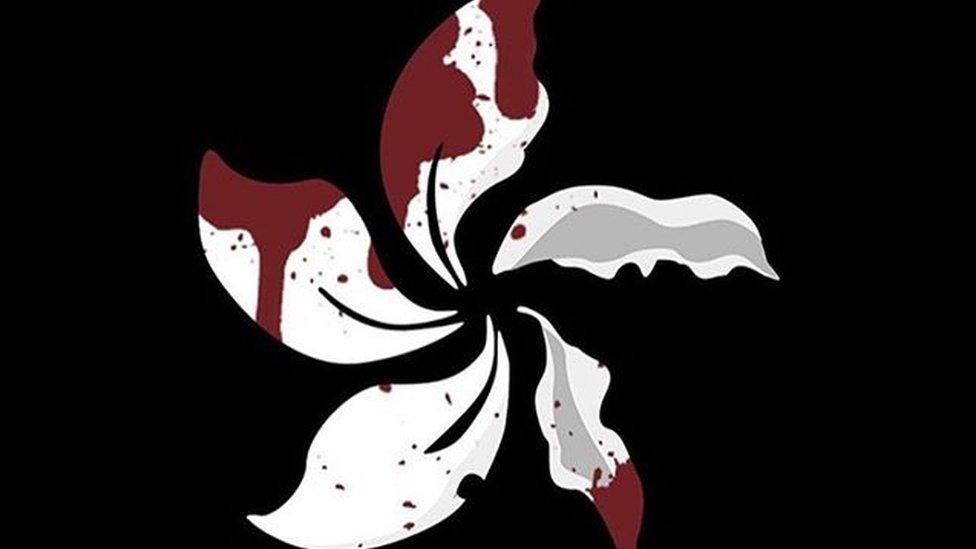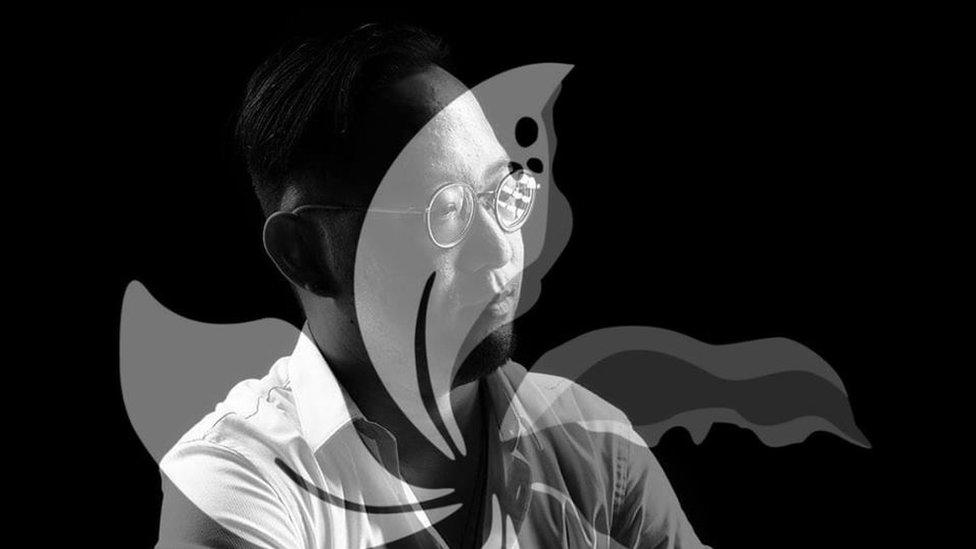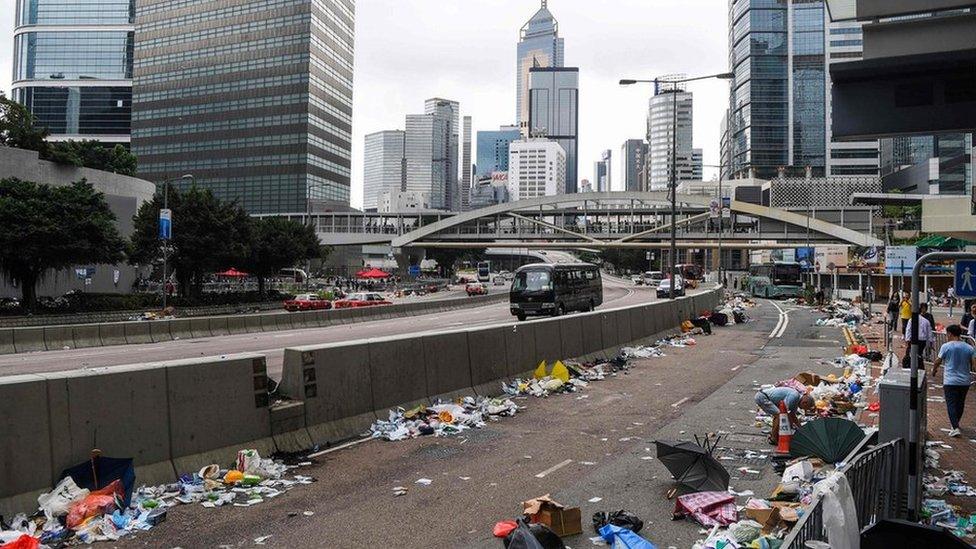Hong Kong protests: Social media users show support
- Published

Social media users are posting pictures of wilted or bloodied bauhinia flowers to express solidarity with protesters in Hong Kong.
Platforms such as Facebook, Twitter and Instagram have been used to share news, pictures and messages of support alongside the images, as well as hashtags such as #FightForHongKong and #HongKongProtest.
Activists' attempts to storm government buildings gave way to the worst violence in the city for decades on Wednesday. Previously, days of protests had seen more than a million people take to Hong Kong's streets for predominantly peaceful demonstrations against plans which would permit extradition requests from authorities in mainland China.
Since sovereignty of the former British colony reverted to China in 1997, when the bauhinia blakeana, or Hong Kong orchid tree, was incorporated onto the territory's new flag, it has retained judicial and economic independence under the principle of "one country, two systems".
But many in Hong Kong worry the territory could be brought more decisively under China's control if the extradition bill passes.
Allow X content?
This article contains content provided by X. We ask for your permission before anything is loaded, as they may be using cookies and other technologies. You may want to read X’s cookie policy, external and privacy policy, external before accepting. To view this content choose ‘accept and continue’.

Some amended their profile pictures on Facebook to incorporate the bauhinia flower.

And the protests have also won international support online.
Allow Instagram content?
This article contains content provided by Instagram. We ask for your permission before anything is loaded, as they may be using cookies and other technologies. You may want to read Meta’s Instagram cookie policy, external and privacy policy, external before accepting. To view this content choose ‘accept and continue’.

In China, however, the internet is tightly controlled by the government and content on Chinese social media platforms is heavily regulated.
AFP journalist Pak Yiu reported images of the protests were being actively censored on WeChat, external, a popular Chinese social media, messaging and mobile payment app.
Police use tear gas on protesters
In Hong Kong, encrypted messaging apps such as Whatsapp, Telegram and Signal have played an important role in enabling organisers to coordinate the protests.
On Tuesday, the administrator of a Telegram group with 30,000 members was arrested for conspiracy to commit public nuisance, according to local media reports.
The following day, Telegram founder Pavel Durov revealed a massive cyber attack on the messaging service originated from China.
Crowds had largely cleared around government headquarters by Thursday morning. Activists have called for protests to resume on Sunday.
"We are trying to use the power of the people to tell the government to stop," Lee Cheuk-yan, a politician and activist told NPR, external.
"People have to go to the street to demand for the government to withdraw the bill. We will continue our protest and have a big march again on Sunday and next Monday."
A second reading of the bill has been delayed by Hong Kong's Legislative Council. It is unclear when this will take place, but the government maintains it is not backing down.
- Published13 June 2019
